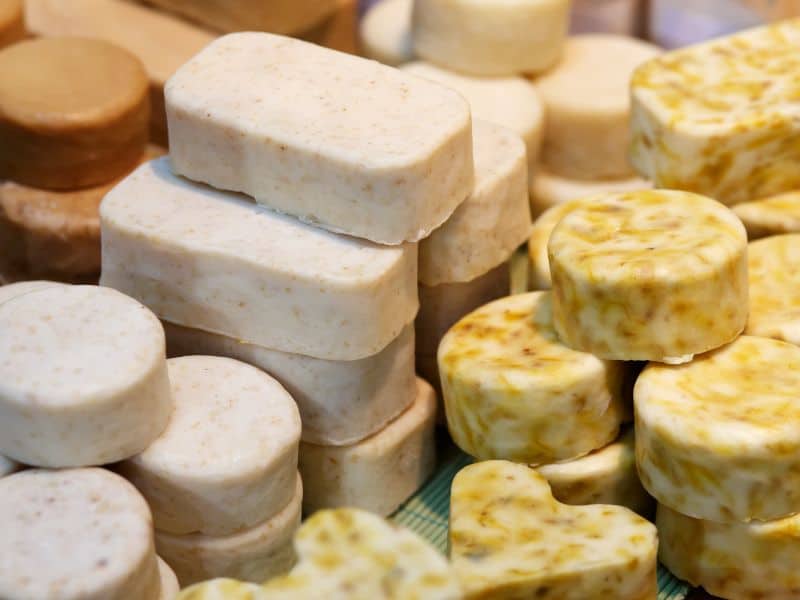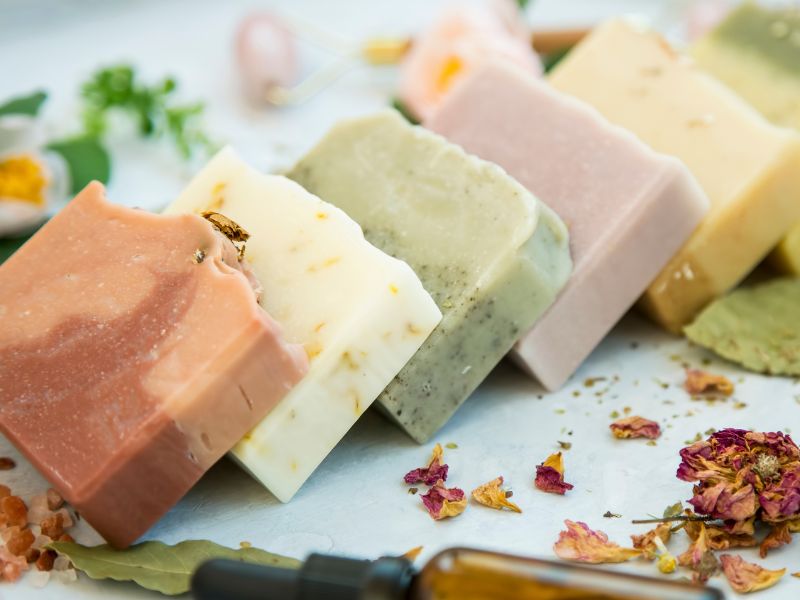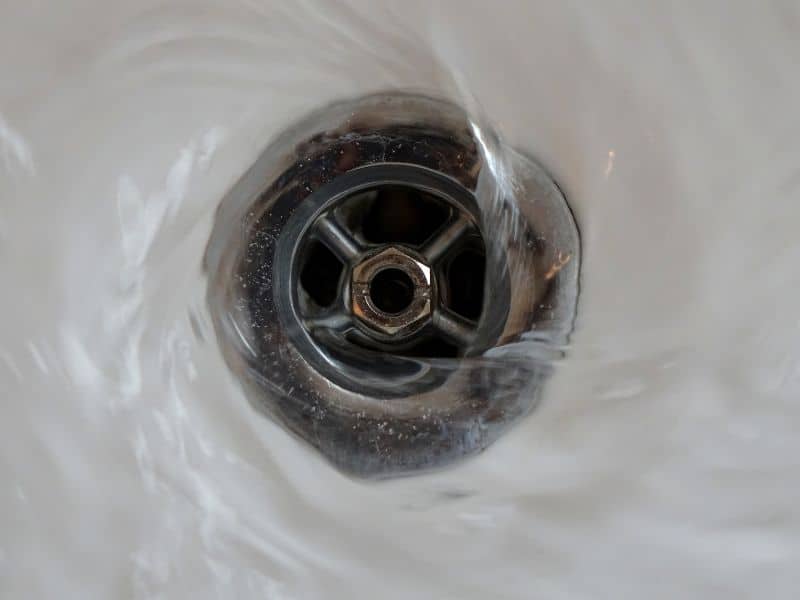We use soap every day to maintain personal hygiene and cleanliness. However, have you ever wondered whether soap is flammable or not? You may find the answer surprising. In this article, we will discuss the science and answer the question – is soap flammable?
Soap is not highly flammable, but some types of soap may be more flammable than others. The presence of glycerin, essential oils, and fragrances can increase the flammability of soap. However, soap fires are rare, and proper handling and disposal can prevent them.
It is important to remember that some of the main ingredients in soap are fats and oils, and that fats and oils are flammable if they reach a certain temperature. Soap contains a variety of fats and oils, including vegetable oil and tallow. These ingredients can become combustible when heated to between 400°F and 500°F (204°C and 260°C).
However, it is extremely unlikely that your soap will ever reach that temperature unless something else is already burning. Let’s take a closer look at this issue and the science behind it.
Better Understanding Soap and Flammability
Before we delve into the flammability of soap, let’s first understand what soap is. It is made up of a combination of fats or oils and an alkali (such as sodium hydroxide or potassium hydroxide). The process of combining fats or oils and alkali is called saponification, and it results in the creation of soap.
What Makes a Substance Flammable?
Flammability is the ability of a substance to ignite and burn when exposed to a flame or heat source. Several factors determine the flammability of a substance, including:
- Flashpoint: The flashpoint of a substance is the lowest temperature at which it gives off enough vapor to ignite in the presence of an ignition source. The lower the flashpoint, the more flammable the substance.
- Chemical Structure: The chemical structure of a substance can affect its flammability. Substances that contain more carbon and hydrogen atoms are generally more flammable.
- Ignition Source: The type of ignition source can affect the flammability of a substance. For example, a spark will ignite a substance at a lower temperature than a flame.
Is Soap Flammable?
Soap is not a highly flammable substance. In fact, most types of soap have a flashpoint of over 200 degrees Celsius, which is higher than the temperature at which paper or wood will ignite. This means that it is unlikely that soap will ignite or catch fire unless it is exposed to an ignition source at a very high temperature.
However, it is important to note that some types of soap may be more flammable than others. For example, glycerin-based soaps are more flammable than other types of soap because glycerin is an alcohol that is highly flammable.
Therefore, it is crucial to be cautious when handling glycerin-based soaps and to keep them away from ignition sources.
Factors Affecting Soap Flammability
Several factors can affect the flammability of soap. These include the type of soap, the presence of additional ingredients, and the manufacturing process.
Type of Soap
As mentioned earlier, glycerin-based soaps are more flammable than other types of soap due to the presence of glycerin, which is an alcohol. Other types of soap, such as vegetable-based soaps, are less flammable.
Presence of Additional Ingredients
Some soaps contain additional ingredients such as essential oils or fragrances, which can affect their flammability. Essential oils and fragrances are often flammable and can increase the flammability of soap.
Manufacturing Process
The manufacturing process can also affect the flammability of soap. For example, soap that has not been properly cured can contain excess moisture, which can make it more flammable.
Examples of Soap Fires
While it is rare for soap to catch fire, it is still possible, and there have been several documented cases of soap fires. In most cases, these fires were caused by the presence of an ignition source near flammable materials, rather than the soap itself being the primary cause of the fire.
One example of a soap fire occurred in 2012 in a factory in Japan. The fire was caused by the ignition of soap waste that had accumulated in the factory over time. The soap waste was highly flammable due to the presence of glycerin, which is often used in soap production.
The fire spread quickly and caused significant damage to the factory, highlighting the importance of proper waste disposal and handling of flammable materials.
Safety Measures to Prevent Soap Fires
While soap is not highly flammable, it is still important to take precautions when handling it to prevent fires. Here are some safety measures to keep in mind:
Store soap away from heat sources
Keep soap away from heat sources such as stoves, ovens, and heaters to prevent it from igniting.
Proper waste disposal
If you are producing soap waste, ensure that it is disposed of properly and not left to accumulate, which can increase the risk of a fire.
Use caution with glycerin-based soaps
If you are using glycerin-based soaps, be extra cautious and keep them away from ignition sources.
Be aware of additional ingredients
Some essential oils and fragrances used in soap production can increase the flammability of soap. Be aware of these ingredients and take extra precautions when handling them.
Follow safe handling practices
Always handle soap with care and follow safe handling practices to reduce the risk of fire. This includes storing soap in a cool, dry place and keeping it away from other flammable materials.
Frequently Asked Questions
The flashpoint of soap is not a standard measure and can vary depending on the type of soap, ingredients, manufacturing process, and other factors.
Proper disposal of soap waste is essential to prevent the accumulation of flammable materials. Soap waste should be disposed of in a safe and responsible way, such as in an approved waste disposal container. Additionally, be sure to keep soap away from ignition sources, like heaters and stoves.
Soap is not dangerous. However, under the right conditions, it can be flammable depending on the type of soap and ingredients used, so it is important to take precautions when handling it.
Yes, some essential oils are flammable. Be aware of any essential oils or fragrances present in your soap and take extra precautions when handling them. Additionally, be sure to keep soap away from ignition sources, like heaters and stoves.
Conclusion
In conclusion, soap is not highly flammable, but some types of soap may be more flammable than others. It is crucial to be aware of the factors that can affect soap flammability, such as the type of soap, additional ingredients, and the manufacturing process.
While soap fires are rare, they can occur, and it is important to take precautions when handling soap to prevent fires. By following safe handling practices and taking appropriate measures, we can safely use soap for its intended purpose without the risk of fire.






